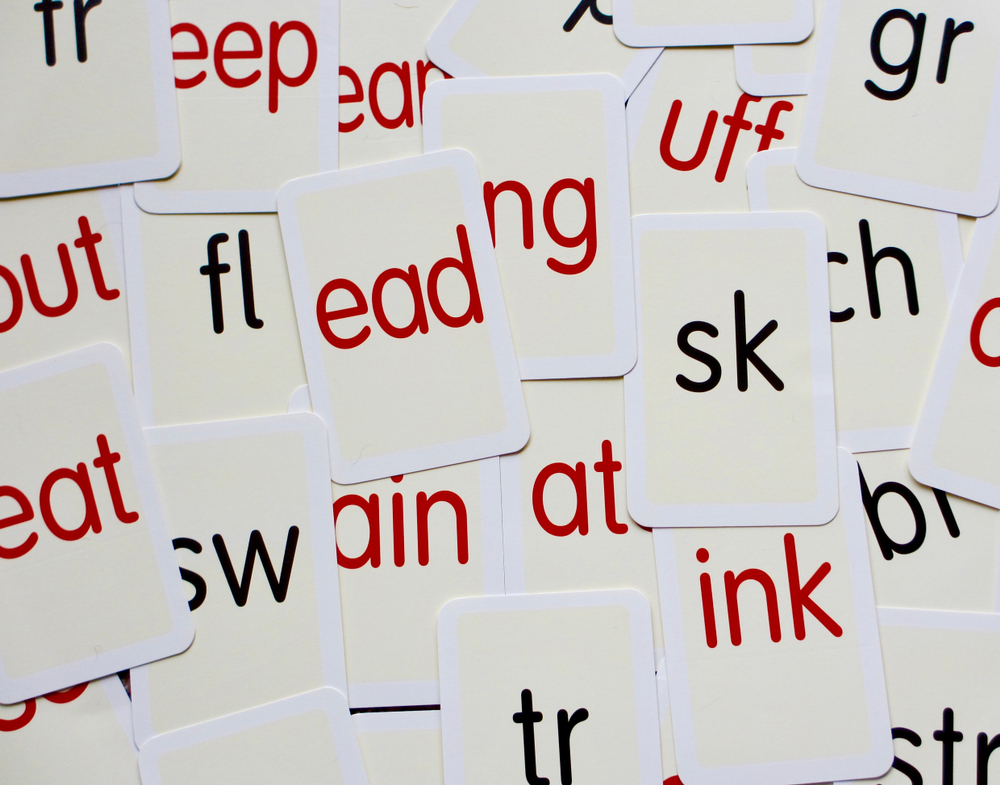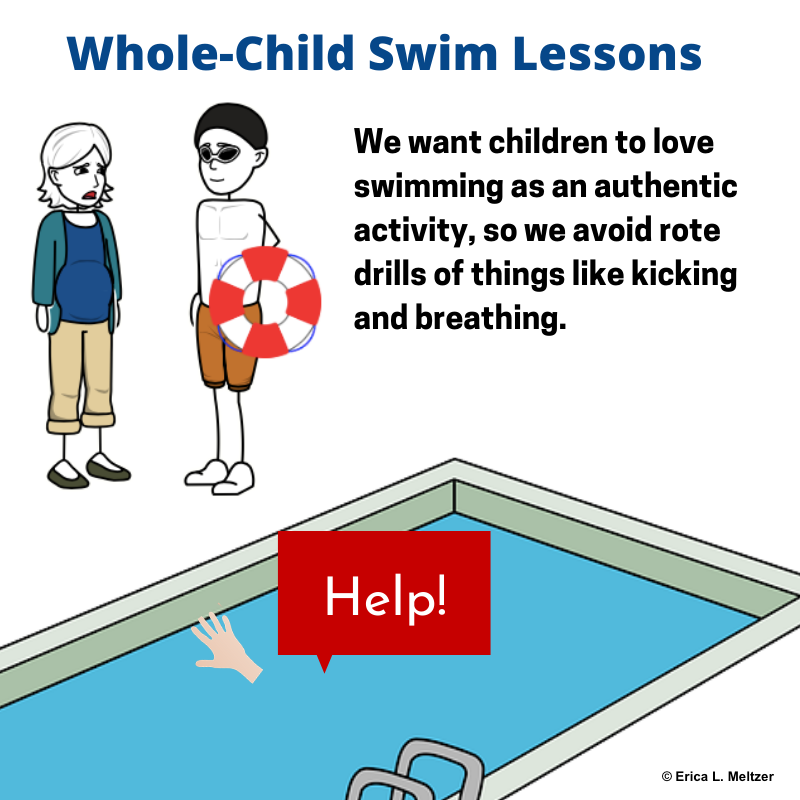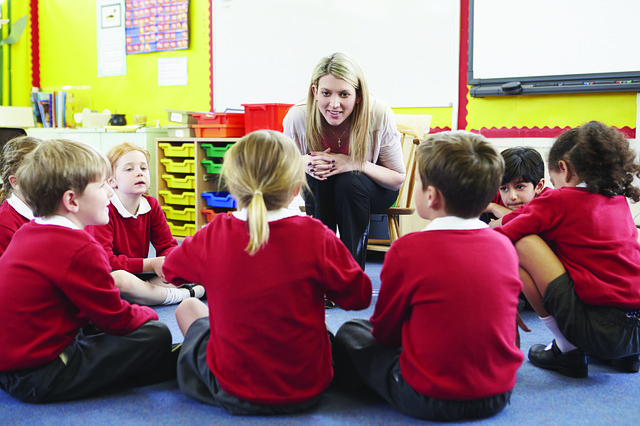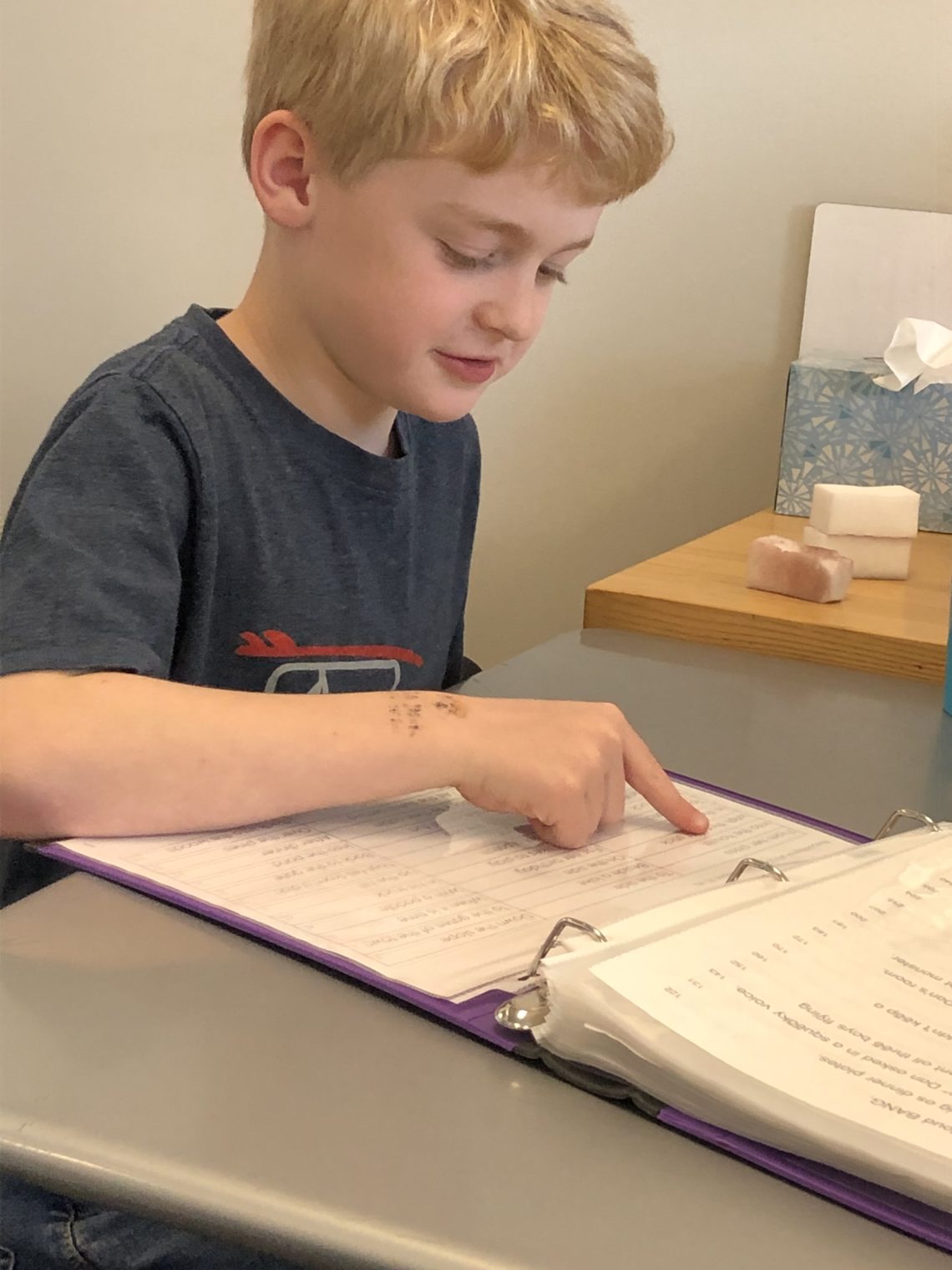Unprecedented. That’s a word we hear a lot these days. Unprecedented times? I think we can all agree the times are unprecedented. Before this year I can’t recall ever having heard the word used so copiously. I fell victim to the virus, or so I’m told by the amazing medical professionals at my local ER, and was laid up for eight weeks in one room. I would rate the experience somewhere between Christopher Nolan’s Doodlebug and Five’s journey through the Apocalypse on The Umbrella Academy (both of which I reviewed during quarantine).The scenario of students infecting their teachers with the virus that everyone is talking about? I lived it. Before…
-
-
Parent-Shaming and the Print-Rich Environment
Notes from a bookseller’s daughter Books were an integral part of my childhood. Not just because my family valued reading, but also because my dad managed bookstores. Some of my earliest memories are of my little brother and me running up and down the stacks after closing hours giggling and screaming. Of course, not everyone giggled at the sight of books, my mom often grumbled about his penchant for filling the house with them, but the book tsunami was unstoppable! To sum it up, I never wanted for books and could easily challenge you to find another person who had more of a print-rich environment than the bookseller’s daughter. Eventually,…
- Common Core, Dyslexia, Ed School, Fluency, Learning Disabilities, Lucy Calkins, Reading Instruction, Science of Reading, Uncategorized
Munchausen by Special Education
I think what we have is a system that doesn’t really, at the end of the day, want students to get better and improve.
- Decoding, Dyslexia, Fluency, Learning Disabilities, Phonemic Awareness, Phonics, Precision Teaching, Reading Instruction, Science of Reading, Teacher Training, Uncategorized, Whole Language
Of Fluency and Fritters
t’s been clear for a long time that something is very wrong with the way reading is taught, but if we genuinely want things to change, we need to take a hard look at what actually works—and building fluency beyond a doubt does so. We owe it to students to get this right: their success in high school and beyond depends on it.
-
And Seem a Saint
We don't tend to assume kids can swim and toss them in the deep end with no preparation to teach them how to swim. We'd rightly assume there's a 50/50 chance they'd drown without first being shown how to swim step-by-step. Someone I met once, likewise, compared education to tossing baby birds out of a nest, and the thought naturally occurred to me that, just as an ill-prepared swimmer might drown, a baby bird with no flying experience has a good chance of dying of a broken neck on the forest floor without being taught how first.
-
Royal Jelly
This column has been in process for over two years. It grew from thinking about the way Royal Jelly determines the life roles of bees. It is a special substance that goes to all bees—but some get more than others. What this fact of simple biology made me think about was something I see each day. In our society there is a similar treatment, a special potion that admits the young person into the inner circle. For us, Americans in the 21st century, that special potion is learning to read. Without it a child will be stunted and sterile—left behind and closed out. A child may become sad and withdrawn, or…
-
10 Reasons the Three-Cueing system (MSV) Is Ineffective
I’ve written a lot about the problems with three-cueing approaches to teaching reading recently, but given that it’s a topic many people remain unfamiliar with, I thought it would be helpful to lay all the major issues out in one place. Here is how the three-cueing approach (also popularly known as MSV) is supposed to work: Students memorize a number of common “sight words”: short, high-frequency words such as are, can, we, and it. They also learn to focus on beginning letters so that they can use the initial sound in a word to help them identify unfamiliar terms. The first books they use are repetitive readers that typically include one non-sight word…
-
The Lasting Danger
“In the simplest terms “Whole Language” is a method of teaching children to read by recognizing words as whole pieces of language. Proponents of the Whole Language philosophy believe that language should not be broken down into letters and combinations of letters and “decoded.” Instead, they believe that language is a complete system of making meaning, with words functioning in relation to each other in context.’ Dr. Monica Bomengen I planned a different column to begin with, but this column, the one I wanted to write, would not leave me alone. I had a week in which thoughts about this topic seemed to permeate my waking mind. So here goes. If you…
-
The Say and Spell Exercise: A Secret Worth Sharing
I am now sharing a secret that has had an immense impact on many of our students. I feel this exercise is so important that I am going to share it with this column, and thereby give it to anyone who reads it. Some years ago, I had a student who was struggling with reading—he was an 8th grader who was reading at 5thgrade level– and reading very slowly. We taught him decoding skills quickly, and his ability to read challenging materials improved rapidly. But we couldn’t celebrate, because his reading fluency remained mired at 100 wpm. We tried having Chris come up through our easier materials to build his reading speed, which…
-
The Haunting Face
It was the face more than anything else–the face that got up on Monday looking sad and pinched. It wasn’t the stomachaches at first; it was that face. Caitlin had always been in constant happy motion. The best hugger, the best climber, the most loving and thoughtful little girl. Now that happy face was sad from Monday to Friday every week. She was in first grade. Now she is about to turn 30. She has been married for two years to a wonderful young man, she has her doctorate in Physical Therapy, and she IS a working physical therapist. She decided that she wanted to be a PT when she…









